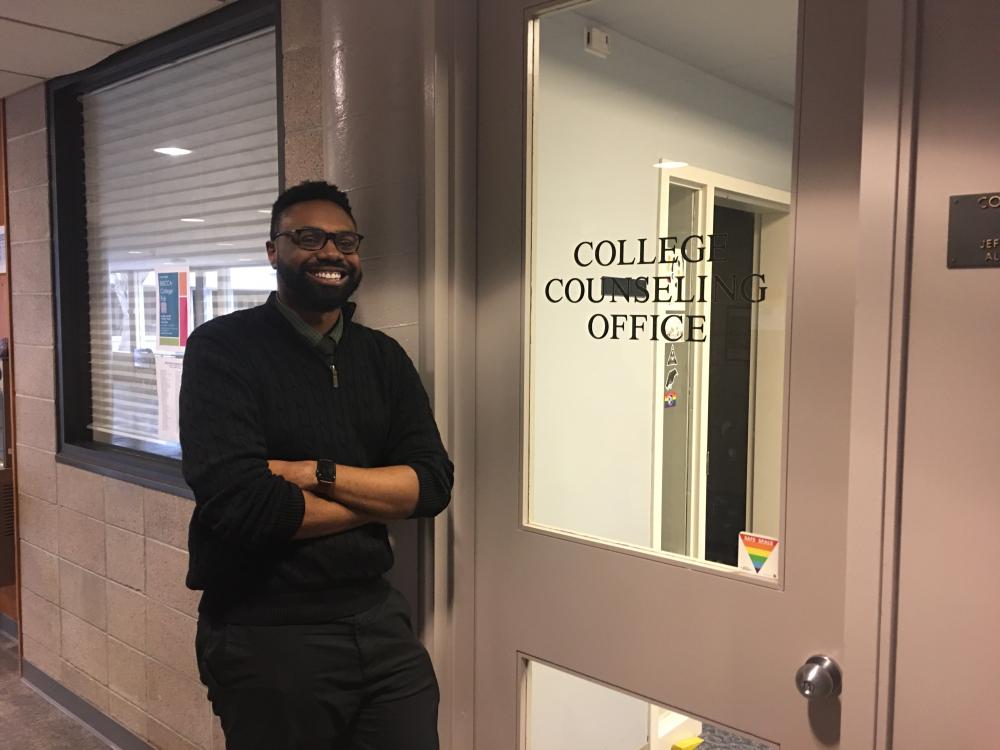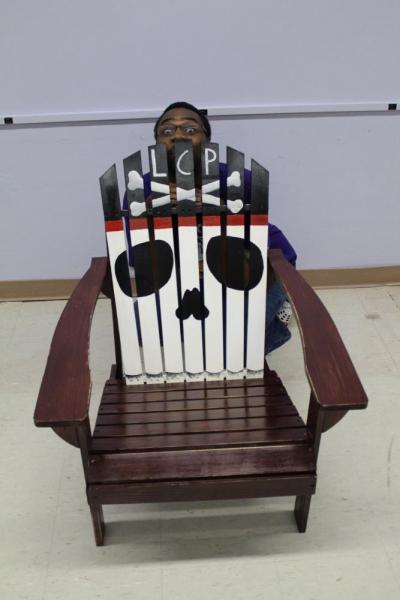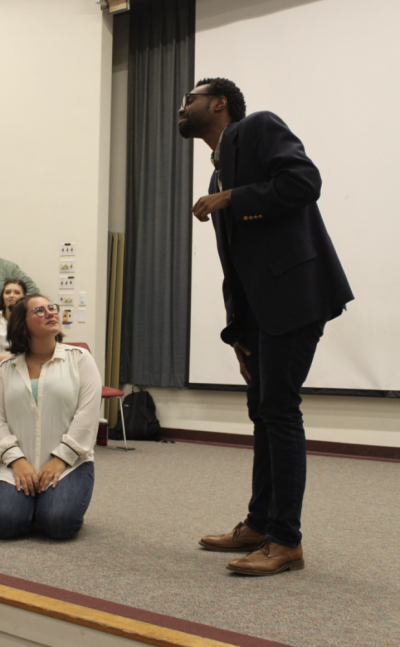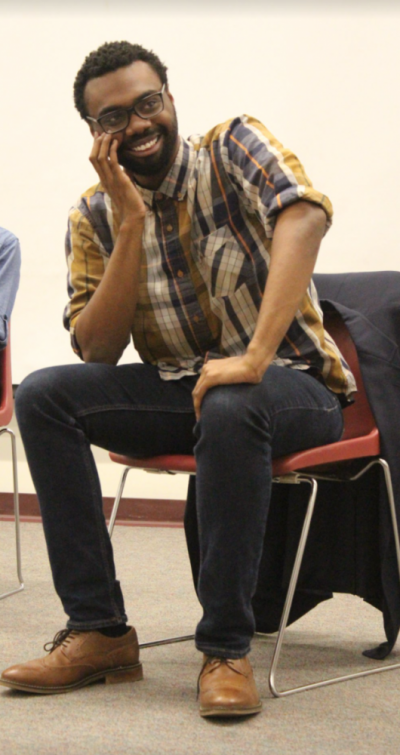On stage and off script, improv artist shines
MARION — Learning to think on your feet can be a funny thing.
Working without a script can make audiences laugh as performers use their imaginations and life experiences to transform a tossed-out concept into entertaining scenarios.
But improvisation provides more than chuckles, improvisational performer Steffon Gales has learned. Working without a script can also help participants build their confidence, communication skills and ability to read people.
“Sometimes,’’ he hopes people realize, “our gut reactions are good.’’
Gales works as the associate director of college counseling at Tabor Academy during the day. But he has devoted some of his free time since college to improvisational theater .
As a college student at the University of Maine at Farmington, he performed improv with the Lawn Chair Pirates.
He and his Tabor colleague John Heavey will present dinner and improv from 5 to 7 p.m. Wednesday, May 11 at Cushing Community Center as part of the SouthCoast Spring Arts festival.
Those attending do not have to participate in the improv exercises, but he hopes they will.
“The idea is that yes, I’m going to feel uncomfortable, and I’m going to bear through it because it’s something to help me grow and have fun.’’
Improvisers will take a suggestion from the audience or draw on another source of inspiration to start. Sometimes, a simple item will prompt a scene, such as a broom or a dishtowel.
Improvisation requires picking up body cues from fellow performers, he said, to develop the next steps in the scene.
Those skills also enrich our daily lives, he said.“The way we interact with people is how we build connections, build relationships.’’
Improvisational performers are often associated with comedy, but serious scenes are also possible.
Consider a scene when a son has cheated on an exam and has to confront his father.
The boy’s body language might be tight and cowering, while the father would expand his chest in rage.
But the situation can also teach them to understand the other’s point of view. For example, the boy would feel bad that he upset his father, and the father might realize that his son felt under unnecessary pressure to succeed.
These scenes can open a person’s eyes to the emotions of another, he said.
“If the pandemic taught us anything, we learned about our identity, who we are and how we take in the day. Taking full stock of where you are by being present in the moment.’’
The skills he has developed in improv also infuse his daily work. As a college counselor, he helps students decide what college to attend and keeps them on track with applications and other necessary paperwork.
He discourages his students from saying a hard no because “that kind of stops everything.’’
Instead, he urges them to say “yes, but.’’ Yes, I can apply to that college, but I will have to take the time to do it, for example, by setting aside time every day to tackle part of the process.
“This technique opens up a dialogue, opens up a scenario so they’re not fixed on one idea.’’
He hopes those who attempt improvisation at the SouthCoast Spring Arts festival will walk away with a similarly broadened view.
“It’s about not taking themselves too seriously,’’ he said.

















